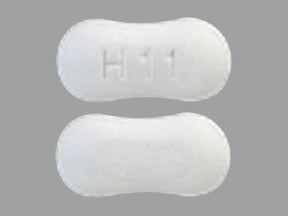
Plaquenil Coupons & Savings Card – Discount Prices from $13.87
Brand for: Hydroxychloroquine
My prescription
Edit
200MG, Hydroxychloroquine (60 Tablets)
Select pharmacy

CVS
$22.80
COUPON PRICE
Walmart
$13.87
COUPON PRICE
Walgreens
$19.02
COUPON PRICE
Albertsons
$24.73
COUPON PRICEPlaquenil savings card
Show this card to your pharmacist
Walmart
$13.87
BIN
ID
PCN
GRP
019876
LHF4A55C71
CHIPPO
LHX
Powered by
Related antirheumatics prescriptions
More prescriptions for rheumatoid arthritis
Related antirheumatics prescriptions
More prescriptions for rheumatoid arthritis
Plaquenil (Hydroxychloroquine) dosage forms
Dosage Quantity Price from Per unit 200MG 60 Tablets $13.87 $0.23 200MG 30 Tablets $8.19 $0.27 200MG 45 Tablets $11.03 $0.24 200MG 90 Tablets $26.06 $0.29 200MG 180 Tablets $39.80 $0.22
| Dosage | Quantity | Price from | Per unit |
|---|---|---|---|
| 200MG | 60 Tablets | $13.87 | $0.23 |
| 200MG | 30 Tablets | $8.19 | $0.27 |
| 200MG | 45 Tablets | $11.03 | $0.24 |
| 200MG | 90 Tablets | $26.06 | $0.29 |
| 200MG | 180 Tablets | $39.80 | $0.22 |
What exactly does Plaquenil do?
Plaquenil, also known as hydroxychloroquine, is primarily used to treat autoimmune conditions such as rheumatoid arthritis and lupus by reducing inflammation and modulating the immune system. It is also used as a prophylactic and treatment for certain types of malaria.
What does Plaquenil do to your eyes?
Plaquenil (hydroxychloroquine) can cause retinal toxicity, which may lead to vision changes or damage to the retina. This can result in symptoms such as blurred vision, difficulty focusing, or seeing light flashes. In rare cases, it can lead to permanent vision loss. Regular eye examinations are recommended for individuals taking Plaquenil to monitor for any potential eye-related side effects.
What should be monitored when taking hydroxychloroquine?
When taking hydroxychloroquine, it is important to monitor several aspects to ensure safety and effectiveness. Regular eye examinations are crucial, as hydroxychloroquine can cause retinal toxicity with long-term use. Blood counts should be monitored to detect any potential hematological effects. Liver and kidney function tests are also recommended to assess any impact on these organs. Additionally, monitoring for signs of muscle weakness or cardiac issues is advised, as these can be rare side effects. Regular follow-ups with a healthcare provider are essential to manage and adjust treatment as needed.
What are the positive effects of Plaquenil?
Plaquenil, also known as hydroxychloroquine, is primarily used to treat autoimmune conditions such as rheumatoid arthritis and lupus. Its positive effects include reducing inflammation, decreasing pain and swelling, and preventing joint damage. In lupus, it can help manage skin rashes and fatigue. Additionally, it may help prevent disease flares and improve overall quality of life for individuals with these conditions.
How do I know if Plaquenil is affecting my eyes?
Plaquenil (hydroxychloroquine) can affect the eyes, and it is important to monitor for any changes. Signs that Plaquenil may be affecting the eyes include blurred vision, difficulty focusing, seeing light flashes or streaks, and changes in color vision. Regular eye examinations are recommended for those taking Plaquenil to detect any early signs of retinal damage. If any visual changes occur, it is important to contact a healthcare provider promptly.
